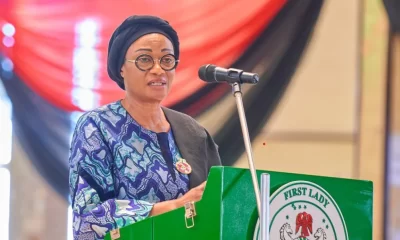By Kingsley Chukwuka
Nigerian Association of Women Entrepreneurs, (NAWE), has advocated for inclusion of Menstrual Hygiene in Health Education Curriculum of the country.
President, NAWE, Barr. Vera Ndanusa who is also an Advocate of the Girl Child, appealed to the government to formulate policies that will boost awareness on menstrual Health Education in Nigeria.
Ndanusa suggested that Health Club on water, sanitation, hygiene and menstrual health should be set up in schools to educate the girl-child on personal hygiene.
She said the approach will help to break the stigma and demystify the culture of silence on menstrual hygiene that can benefit other women and girls in Nigeria.
Identifying high cost of sanitary pads as one of the major challenges faced by women and the girl-child in maintaining proper hygiene, Ndanusa beacon on government and Non-governmental Organisations (NGOs), to assist ladies with free donation of the product.
According to her “Over 37 million Nigerian adolescent girls and women of reproductive age, lack access to menstrual hygiene products due to high costs.
“An increase in the importation tariff has affected consumers’ price and purchasing ability, which is detrimental to women and girls.
“This high cost of menstrual products which will in the long run be borne by women and girls will definitely affect school girls across Nigeria, thereby creating a ‘Period Poverty,’ a situation where women and young girls lack access to sanitary products due to financial constraints.
“NAWE will also use this opportunity to highlight to the appropriate authorities, the danger the proposed National Diaper and Sanitary Pads Policy, which increases the import tariff on Diapers and Sanitary pads from 20 percent to 55 percent poses on Menstrual Hygiene Management.
“This Policy will no doubt affect the availability, affordability and acceptability of sanitary pads in the country, and will further negate the successes so far recorded in the fight against poor hygiene among women”, Ndanusa said.

 Entertainment7 days ago
Entertainment7 days ago
 Entertainment4 days ago
Entertainment4 days ago
 Comments and Issues6 days ago
Comments and Issues6 days ago
 Business7 days ago
Business7 days ago
 Comments and Issues6 days ago
Comments and Issues6 days ago
 Health1 week ago
Health1 week ago
 Health5 days ago
Health5 days ago
 Editorial Opinion1 week ago
Editorial Opinion1 week ago

